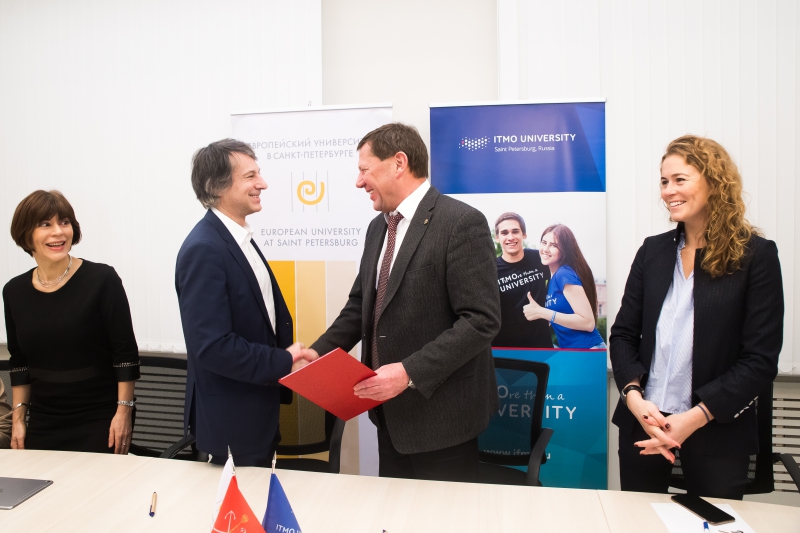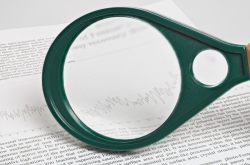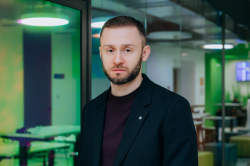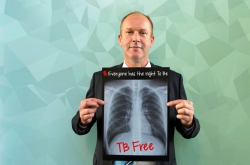‘Science and Technologies in Society’, the first joint Master’s program between ITMO University and the European University at St. Petersburg, will welcome its first students in the fall of 2019 and will aim to train specialists in the field of social research on science and technology. As ITMO University’s Rector Vladimir Vasilyev has noted during the meeting, this program is the next step in the two universities’ longtime partnership.
“We’ve worked with the European University on many occasions and are thus very familiar with each other’s strengths and competencies. As for our future collaboration, I’d like to say that we see great promise in convergence and the intersection of social science and humanities elements with modern information and communication technologies. I believe that the synergy of our competencies, combined within our new joint program, will help us produce results beneficial not only to the Russian higher education industry but also relevant on the global scale,” said Rector Vasilyev.
According to Vadim Volkov, the Rector of the European University at St. Petersburg, the need for such a program is necessitated by a severe lack of specialists who, equipped with sufficient scientific knowledge and practical skills, would be able to effectively promote the scientific achievements made by research laboratories.
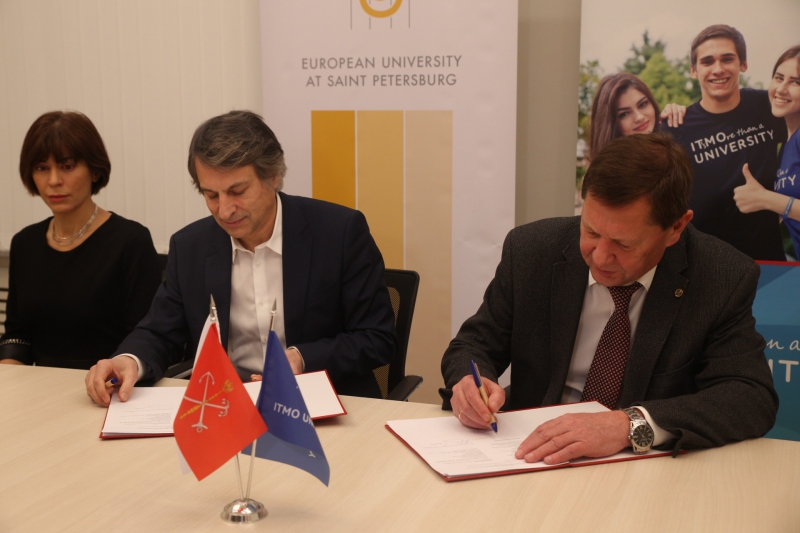
“We’ve always done well in terms of ideas and inventions, but when it comes to entrepreneurship and the adoption and propagation of technology, there are many obstacles of which many are not all that familiar,” said Dr. Volkov. “Scientific discoveries are made in labs, organizations, teams. But we also can’t forget that they depend on the social climate and communication. These aspects are not sufficiently studied, and there is a lack of specialists who would understand how to do that. That is why our program aims to combine scientific knowledge with useful practical skills that are so necessary for today’s society”.
About the program
The new joint program’s key difference from ITMO University’s existing program in science communication is its emphasis on research, explains head of ITMO’s Science Communication and Outreach Office Dmitry Malkov.
“Our collaboration with the European University has begun much earlier and continued throughout our development of the Science Communication Master’s program. That program trains science communicators, journalists, and PR specialists in the fields of science and business. In the process, we realized that the program was lacking in terms of research,” he notes. “In regards to the translation and transfer of scientific knowledge to the society, science communication is a process placed within the social sciences, and it would be incorrect to study it without acquiring sociological experience. We believe that our collaboration has been very productive so far. What we’ve got is a full-fledged double-degree Master’s program that will examine the generation of scientific knowledge and its transfer into applied innovative solutions in the society”.
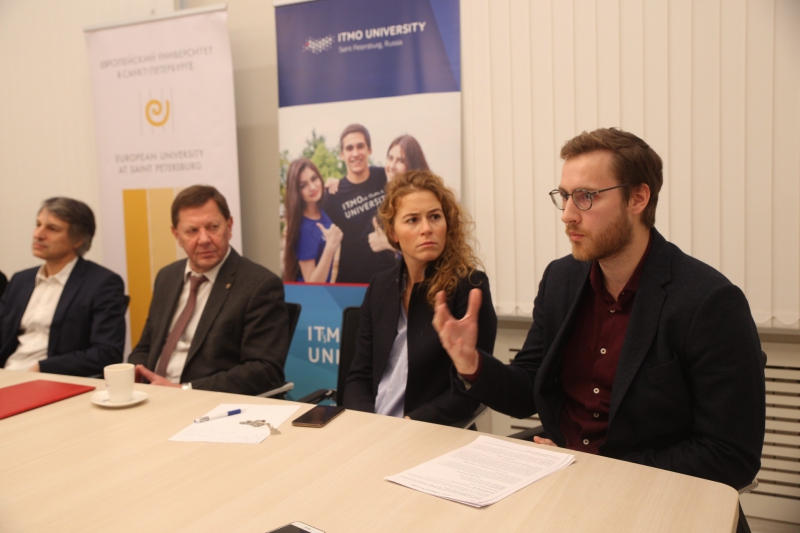
The program’s creators point out that students will study at the intersection of various disciplines such as social sciences, innovations, public policy and science communication. Theoretical disciplines will be taught by the staff of European University, and these include such courses as “Classical Social Theory”, “Sociological Methods”, and “The Study of Science and Technology”.
For its own part, ITMO University will maintain the IT aspects of the program. That includes courses on scientometric analysis and science mapping, as well as data analysis and processing. And thanks to ITMO’s already established SciComm cluster, the new program will include disciplines such as “Analysis of the Public Perception of Science and Technology”. Classes will be taught by the partner universities’ staff as well as invited lecturers from other leading universities.
Admission and the educational process
The program ‘Science and Technologies in Society’ is designed for students from various backgrounds: among its students may be those with a Bachelor’s degree in natural science or technology who wish to pursue a career in studying the social and political aspects of science and research, as well as humanities graduates who wish to delve into hard science.
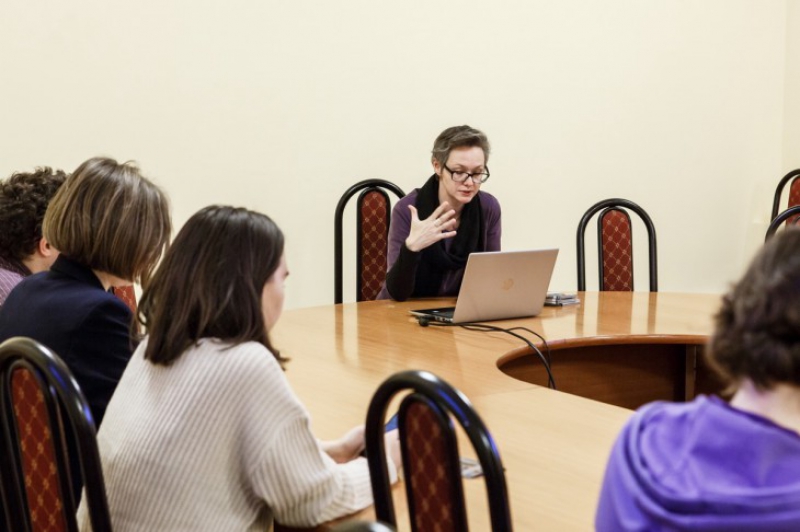
The program’s main language is Russian, but several courses will be taught in English. Plans for the program include international invited lecturers, as well as internships and practical training abroad.
Students can choose to undergo their practical training at various organizations involved in the transfer of science and technology into the public space. That includes technological companies, state and municipal bodies, and non-profit organizations. Other activities include visits to research labs, startups, and industrial facilities.
Graduates of the program will receive two degrees from each ITMO University and the European University at St. Petersburg.
Employment prospects
Students and graduates of the program will have the opportunity to apply their skills and knowledge with the institutions and organizations operating in science and technology, and as researchers, analysts, consultants, managers, and communications and PR specialists.
As Olga Bychkova, the head of European University’s Center for Science and Technology Studies, explains, one of the new program’s key goals is to remedy the lack of communication between Russian universities and scientific organizations, namely in what has to do with the effective representation of lab-made results.
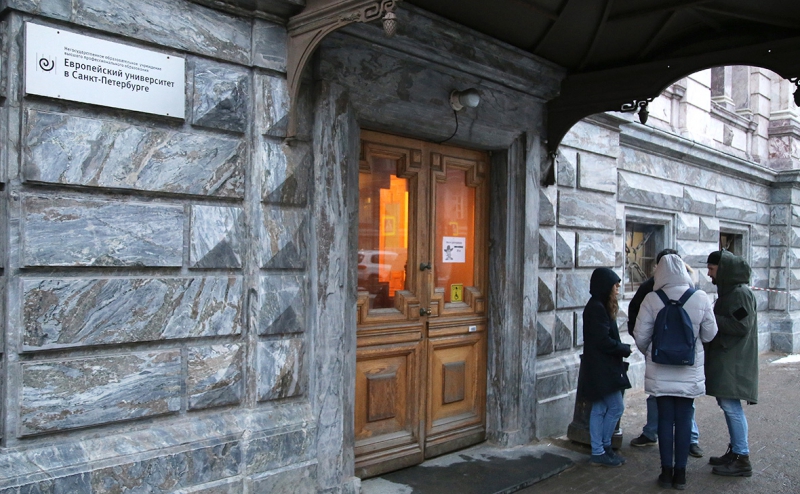
“There are certain rules to scientific discoveries; for instance, you can’t speak about an idea or invention too early or you risk failure. Finding the right moment, the right amount of information and the right angle are the tasks that will be the domain of our program’s graduates,” she says.
In addition to universities and scientific organizations, graduates will also be in high demand among tech companies, she adds.
“Operating as a high-tech company requires a certain amount of public relations and understanding how the public will react to your products and whether you will be understood. These days, a lot of news is being circulated about the various scientific achievements, and it can be very difficult to tell apart the ones that are true and the ones that aren’t. Our specialists will be the ones who will seek the balance between trust and mistrust of their audience. The importance of such work is already a topic of consideration in business, but in five years it’s bound to rise to prominence when companies realize that they must work closely with the public and explain the value of technologies that may be often met with mistrust,” concludes Prof. Bychkova.
